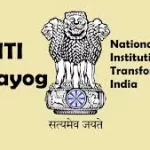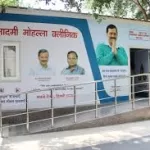New Delhi, Feb 23: Vice President Jagdeep Dhankhar has emphasized the profound significance of meditation, describing it as “food for the soul” and a “necessity for global peace.” Speaking at the Global Conference of Meditation Leaders (GCML) at Bharat Mandapam in New Delhi, Dhankhar highlighted meditation’s role in individual well-being and its potential to foster global harmony.
The conference, which gathered spiritual leaders and meditation practitioners from around the world, aimed to integrate meditation into leadership, governance, and societal well-being. Dhankhar, delivering the keynote address, noted that India’s global leadership in meditation aligns with international initiatives, including the United Nations’ recognition of World Meditation Day and the G20 vision of ‘One Earth, One Family, One Future.’
A Call for Global Integration
A major outcome of the conference was a resolution urging governments worldwide to incorporate meditation into education, healthcare, corporate leadership, and governance. Experts at the event underscored meditation as a scientific process with measurable benefits for mental and physical health. They stressed its potential role in national development policies, advocating for its formal integration into various sectors.
Spiritual Insights and Scientific Backing
Padma Bhushan awardee Daaji (Kamlesh Patel ji), addressing the gathering, delved into the deeper aspects of spiritual evolution. He emphasized the need to work on the subtle body—mind (manas), intellect (buddhi), and ego (ahankar)—for true transformation. He also shared an affirmation, stating, “My Lord, I want to experience your divine presence in my heart.”
Scientific demonstrations at the event showcased how meditation influences brain waves, enhances emotional intelligence, and improves overall well-being. Experts called upon governments to recognize meditation as a foundational pillar of national well-being and governance.
Pratyahara: Turning Inward for Peace
Vice President Dhankhar also highlighted the importance of Pratyahara—the practice of turning inward. Drawing an analogy with modern distractions, he remarked, “Just as we put our phones away to focus, we must train our minds to withdraw from distractions and find inner peace.”
Concluding his speech, Dhankhar called for a national movement to integrate meditation into India’s cultural and governance framework. He reinforced its role in shaping a peaceful and balanced society, urging collective efforts to make meditation a cornerstone of national well-being.
Disclaimer: This article is based on publicly available statements and information from the Global Conference of Meditation Leaders. The views expressed by the speakers are their own and do not necessarily reflect any official policy or directive of the Government of India.











